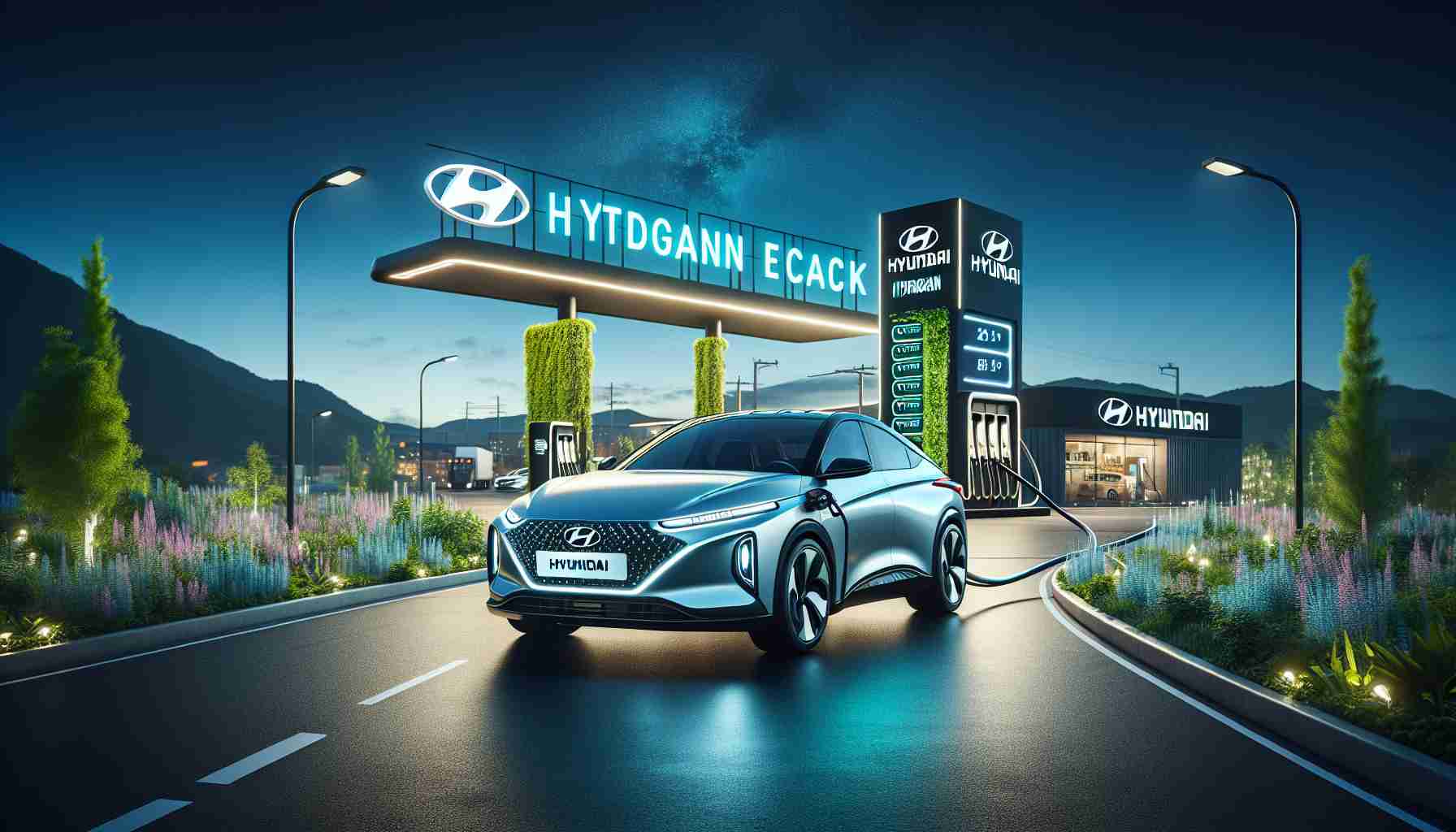Hydrogen-powered vehicles have long sat in the shadow of their electric counterparts, but Hyundai aims to put hydrogen back on the map with its latest innovation—the Initium. This futuristic hydrogen-powered SUV is set to change perceptions and possibly pave the way for a new era of clean energy transportation.
Hyundai’s Revolutionary Move
Hyundai has announced its ambitious plans to roll out the Initium SUV, which combines hydrogen fuel cell technology with an electric motor for backup. The Initium boasts a remarkable range of approximately 404 miles on a single hydrogen refill and can also recharge via a conventional household power outlet. This dual power system showcases Hyundai’s commitment to versatility in eco-friendly transport solutions.
Global Stage Debut
Anticipation builds as the Initium is scheduled to make its official debut at the prestigious LA Auto Show and Auto Guangzhou in China. Despite the unveiling, specific details on its launch markets remain unconfirmed, leaving the prospect of a U.S. release open to speculation.
The Road Ahead for Hydrogen
While only a concept at present, Hyundai’s Initium signifies the company’s robust investment in hydrogen technology. The automaker has allocated a staggering $4 billion to advance hydrogen infrastructure as part of its strategy to achieve carbon neutrality by 2045. However, challenges persist with only 59 hydrogen refueling stations in the U.S., primarily limited to California.
As the automotive landscape evolves, Hyundai’s bold step with the Initium could be the catalyst needed to usher in a hydrogen-powered future, challenging the electric vehicle dominance and offering an eco-friendly alternative to traditional gasoline engines.
Could Hydrogen Power Be the Secret to an Eco-Friendly Future?
As Hyundai’s Initium brings hydrogen vehicles back into the limelight, it’s crucial to explore the wider implications of hydrogen technology and its potential impact on global transportation, economies, and communities.
Beyond Hyundai: A Growing Hydrogen Coalition
While Hyundai’s efforts with the Initium are noteworthy, they’re not venturing into this domain alone. Companies like Toyota and Honda have also been investing in hydrogen technology, offering vehicles like the Mirai and Clarity. These automakers are forming a coalition focused on proliferating hydrogen as a viable alternative fuel, suggesting a broader industry shift towards a more diverse eco-friendly vehicle market.
Unlocking the Potential of Hydrogen Infrastructure
Despite considerable excitement, the lack of infrastructure remains a pressing concern. With only 59 hydrogen refueling stations in the U.S. and predominantly located in California, widespread adoption seems like a distant dream. However, a wave of investment might alter this landscape. The European Union has shown significant interest in hydrogen, outlining a strategy to build a network of stations across Europe. Such developments can inspire similar initiatives in other parts of the world, potentially triggering a domino effect that could make hydrogen more accessible.
What Does This Mean for Consumers?
For consumers, hydrogen vehicles could offer practical benefits over their electric counterparts. Hydrogen fuel cells have shorter refueling times and offer longer ranges than most current electric vehicles. This could be a game-changer for those in rural areas where charging station access is limited, or for commercial fleets requiring quick turnaround times.
However, the price tag and limited refueling infrastructure might still deter many from opting for hydrogen vehicles. Overcoming these challenges requires significant government support and private sector investment to develop an extensive network of refueling stations and bring down costs.
Environmental Impact and Sustainability
Hydrogen’s appeal largely stems from its potential for zero emissions, offering a cleaner alternative to fossil fuels. However, not all hydrogen is created equal. The most common production method today is natural gas reforming, which is not entirely emissions-free. Green hydrogen, produced via renewable energy-powered electrolysis, holds the key to true sustainability, yet it remains costly and underdeveloped.
Controversies Surrounding Hydrogen Technology
Critics argue that hydrogen technology diverts attention and resources away from electric vehicles, which already have a growing infrastructure and market demand. Some view the push for hydrogen as an unnecessary complication in the urgent transition to green energy solutions. Moreover, the continued reliance on non-renewable hydrogen production raises questions about the industry’s true commitment to sustainability.
Looking Forward: Hydrogen’s Role in the Bigger Picture
Despite these challenges, the development of hydrogen-powered vehicles like the Initium represents an important step in diversifying our approach to combating climate change. The evolution of technology and infrastructure will determine whether hydrogen can truly compete with electric vehicles, providing a significant alternative for consumers seeking clean energy transportation.
For more information on hydrogen vehicles, readers might explore Toyota, as they are one of the frontrunners in this space alongside Hyundai. The future of hydrogen transportation is fraught with challenges but also holds the promise of a more sustainable and versatile approach to addressing the global energy crisis.
Could hydrogen be the energy breakthrough we’ve been waiting for, or will it remain a niche solution in the shadow of electric vehicles? Only time will tell as technological advancements and infrastructure investments unfold.










